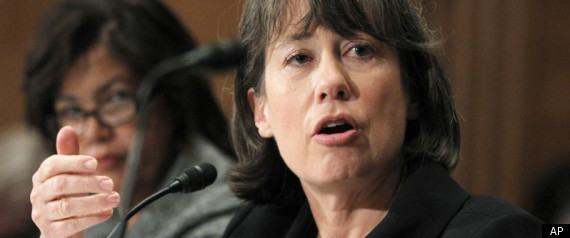The Wake-Up Call:

First Posted: 05/26/11 12:03 PM ET Updated: 05/26/11 12:04 PM ET
• Outgoing Federal Deposit Insurance Corporation chair Sheila Bair appears before the House Financial Services committee to discuss the agency's role during and after the financial crisis. Bair calls on regulators to show political courage to do their work effectively and take on weak practices and excessive risk-taking. Key quote:
"The history of the crisis shows many examples when regulators acted too late, or with too little conviction, when they failed to use authorities they already had or failed to ask for the authorities they needed to fulfill their mission. As the crisis developed, too many in the regulatory community were too slow to acknowledge the danger, and were too slow to act in addressing it. The fact is, regulators are never going to be popular or glamorous figures, whether they act in a timely manner to forestall a crisis or if they fail to act and allow it to take place. The best they can hope to achieve is the knowledge that they exercised the statutory authority entrusted to them in good faith and to its fullest effect in the interest of financial stability, without regard to the political consequences." [WATCH LIVE]
• The administrator of Fannie Mae and Freddie Mac, Edward Demarco, pushed back strongly yesterday against Rep. Jason Chaffetz's (R-Utah) proposal to make the housing finance giants open to FOIA requests. His argument: FOIA is "often explained as a means for citizens to know what their Government is up to" and Fannie and Freddie are still private companies. "They did not cease to be private legal entities when they were placed into conservatorship, nor did they become part of FHFA." As Zero Hedge points out: "Still private companies? That's the reason they are shielded? After the taxpayers shelled out $200b (and counting)? Bullshit."
• The White House released the results of its promised regulatory review and published a list of initiatives from over two dozen agencies that are designed to reduce burdens and save money. Among them, the Interior Department is reviewing outdated regulations under the Endangered Species Act. What caught your eye? Let me know.
• Has lobbying by financial institutions contributed to the financial crisis? That is the question explored in a study by three IMF economists. Among their findings: lobbying was associated with more risk-taking during 2000-'07 and bigger bailouts by the government following the financial crisis. In particular, those who lobbied the most made the riskiest loans and expanded faster than their competitors, exacerbating the housing crisis.
• Today's must-read: a great AP investigation legendary gun manufacturer Colt. The company turned to a high-powered lobbyist when it looked like it was about to lose its exclusive deal to provide combat rifles to the U.S. military. "The move highlights the importance of a contest that is the Super Bowl and World Series rolled into one for the small arms industry. The Pentagon may buy hundreds of thousands of the new carbine, which should be more accurate, lethal and reliable than the M4 used by troops in Afghanistan and Iraq. At stake is millions of dollars in business for the winner at a time when budgets are tightening and opportunities for long-term weapons contracts are dwindling."
• Congress may take up proposed legislation to apply U.S. criminal laws to federal employees and government contractors working overseas, reports Legal Times. This marks the third such attempt in the wake Blackwater security guards killed Iraqi civilians in September 2007.